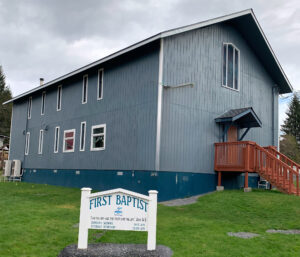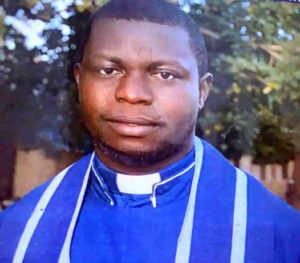
UPDATE: Alabama Gov. Kay Ivey signed the bill Wednesday afternoon (May 15).
MONTGOMERY, Ala. (BP) — The Alabama Legislature has approved the strongest abortion prohibition yet in this year’s state battles over the issue.
 The Alabama Senate passed a bill to ban abortion in a 25-6 vote Tuesday (May 14), two weeks after the House of Representatives voted 74-3 for the proposal. The bill’s sole exception to the prohibition is “to prevent a serious health risk to the unborn child’s mother.”
The Alabama Senate passed a bill to ban abortion in a 25-6 vote Tuesday (May 14), two weeks after the House of Representatives voted 74-3 for the proposal. The bill’s sole exception to the prohibition is “to prevent a serious health risk to the unborn child’s mother.”
Under the legislation, a person who performs an abortion would be guilty of a Class A felony, which calls for a sentence of 10 to 99 years. The measure would not hold the woman who receives an abortion “criminally or civilly liable.”
Gov. Kay Ivey, a Republican, has not announced her decision, but the bill’s supporters are hopeful she will sign it into law.
The Alabama action is the latest in a legislative year marked by a flurry of state measures that range from New York’s protection of abortion rights until the moment of birth to measures in several states outlawing abortion beginning early in pregnancy.
The activity in the states comes as abortion rights advocates issue warnings about a U.S. Supreme Court that has apparently become more conservative with the confirmation of two nominees by President Trump. They fear the current court could overturn the 1973 Roe v. Wade opinion, which struck down all state abortion bans and legalized the procedure throughout the country. Meanwhile, pro-life legislators are seeking to enact further protections for women considering abortion and their unborn children that will be found acceptable by the high court and possibly lead to Roe’s reversal.
Chelsea Patterson Sobolik, policy director for the Southern Baptist Ethics & Religious Liberty Commission, offered thanks to the Alabama legislature for passing “this momentous law to protect the lives of the unborn.”
“As we’ve seen, this act catalyzed national conversations centered on whether or not life in the womb is life at all,” Sobolik told Baptist Press in written comments. “This is progress toward the day we long for, when abortion is unimaginable because the humanity of the child is undeniable. Jesus calls us to love our neighbor as ourselves. This means we must advocate for policies that protect and promote the dignity and worth of both women and the unborn.
“I join pro-life advocates in looking forward to Alabama Governor Kay Ivey signing the bill into law, as our country takes one more step in the establishment of protection and justice for the unborn,” she said.
Joe Godfrey — executive director of the Alabama Citizens Action Program (ALCAP), an auxiliary of the Alabama Baptist State Board of Missions — expressed his gratitude “for the courage of the Alabama legislators who voted for this bill in the face of tremendous pressure from opponents of pro-life legislation.”
The votes by the Senate and House “demonstrated that legislators are listening to their constituents,” Godfrey told BP in written remarks, citing the adoption by citizens in November of an amendment to clarify that the state constitution does not provide a right to abortion or require its public funding.
Godfrey told BP, “We fully expect that, once the governor signs the bill into law, it will be challenged in court. Our hope and prayer is that this law will be used to overturn [Roe v. Wade] and that the lives of babies in the wombs of their mothers will be protected once again in our state and nation.”
Rep. Terri Collins, R, lead sponsor of the bill, acknowledged her intent was to gain approval of a bill that would provide the best challenge to Roe v. Wade, according to The Birmingham News. “My goal with this bill … is to have Roe v. Wade turned over, and that decision be sent back” to the states, she said.
Abortion rights organizations decried the bill’s passage and promised to bring a legal challenge if it becomes law.
“Politicians in Alabama just passed the most extreme and dangerous policy since Roe vs. Wade, banning abortion at any point in pregnancy — going so far as to threaten doctors with life-in-prison,” said Leana Wen, president of Planned Parenthood. “With a record number of extreme bans on abortion and [Brett] Kavanaugh on the Supreme Court, our fundamental right to health care is under assault like never before.”
Planned Parenthood, the country’s No. 1 abortion provider, helped lead the unsuccessful opposition to Kavanaugh’s confirmation in October.
Other bans on abortion in early pregnancy have gained enactment this year in Georgia, Kentucky, Mississippi and Ohio. Those new laws prohibit abortion after a fetal heartbeat can be detected, which could occur at six to eight weeks of pregnancy. The governors of Montana, North Carolina and Wisconsin have vetoed heartbeat bills, however. Arkansas and Utah have adopted abortion bans after 18 weeks.
Such state laws may not provide the best case for a reversal of Roe v. Wade, said pro-life legal expert Clarke Forsythe.
“Some sponsors of these bills may be motivated by the belief that they present an ‘ideal test case’ for the Supreme Court,” Forsythe wrote May 9 in National Review. “Others think that an abortion prohibition will ‘force’ the Court to readdress Roe v. Wade. Neither of these assumptions is accurate. In fact, a prohibition on early abortions may be the type of law least likely to attract Supreme Court review.”
Forsythe — senior counsel at Americans United for Life (AUL) and author of a book on the Roe v. Wade decision — said the high court “doesn’t need a prohibition case to readdress Roe v. Wade. It can do so in any case in which an abortion limit arguably conflicts with Roe.”
It may be more likely the justices would choose “a non-prohibitory law” as the means of re-examining Roe, he said.
The New York law enacted in January not only legalizes abortion until birth, but it permits the death of babies who survive the procedure, according to AUL. Other states are considering similar legislation.
Other states to enact pro-life laws in 2019 include Indiana, North Dakota, Oklahoma and South Dakota.
The Supreme Court affirmed Roe v. Wade in a 1992 opinion but also ruled states may regulate abortion to protect the lives and health of women.















